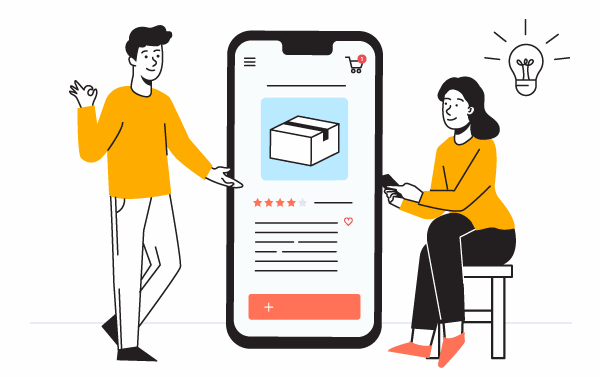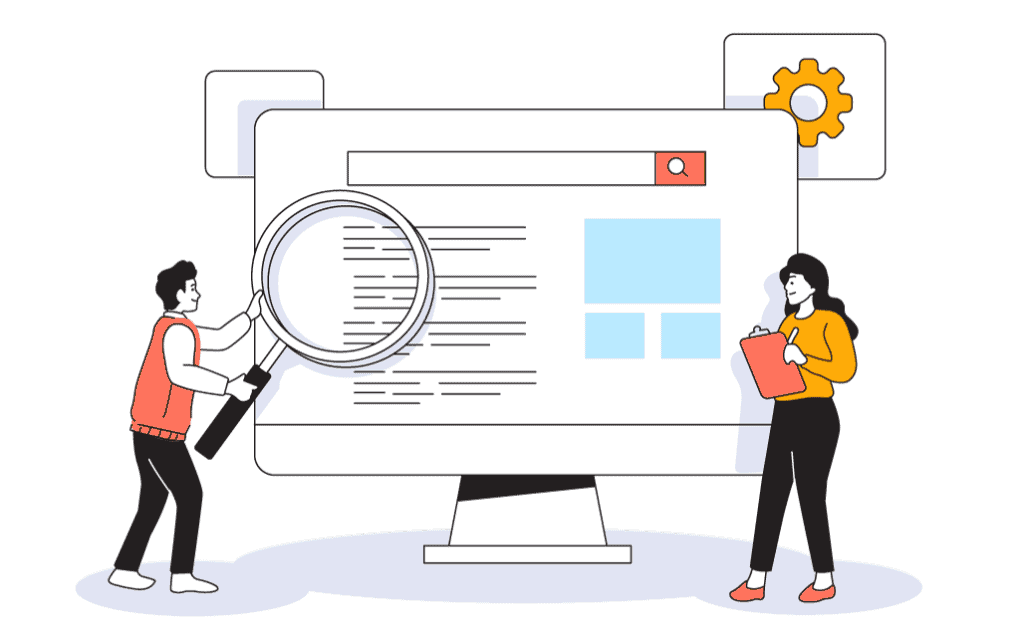Thinking of launching your Shopify store but not sure if you need a business license first?
It’s a super common question, especially when you’re just getting started and trying to keep things lean.
But what does Shopify actually require? And what do local laws say?
We put a lot of effort into this guide to break it all down—when you need a license, when you don’t, and what’s legally safe.
Quick Answer: Do you need a business license to sell on Shopify?
You do not need a business license to sell on Shopify. Shopify only requires you to provide tax information, such as a tax ID or the last four digits of your Social Security Number, to use Shopify Payments.
However, depending on local laws, you may need a business license or seller’s permit to legally operate in your region.
Let’s go deeper—what rules apply, when to register, and how to stay compliant while keeping things simple!

Tip: Have you already created your Shopify account? If not, sign up by clicking this link here to get a free 3-day trial + 3 months for $1 each!

Do you need a business license to sell on Shopify?
No, you don't need a business license to sell on Shopify.
Simply create your Shopify account, and you're good to go.
However, you must submit your tax details to use Shopify Payments, which is Shopify's in-house payment processing solution.
For businesses, this means submitting your tax ID.
And if you’re operating as a sole proprietor, you must submit the last four digits of your Social Security Number (SSN) to use Shopify Payments.
Now, even though you don't need a business license to sell on Shopify, don’t forget to check your local laws.
Depending on where you are, you might need a seller’s permit or some additional paperwork to ensure you’re all set for selling online.
Disclaimer: We are not lawyers, and this post should not be considered legal advice. You should seek appropriate counsel for your own situation.
Also, this post is directed primarily toward readers in the United States. If you are conducting business outside the United States, it is recommended you find and understand your obligations regarding disclosure.
Do you need a business license to sell online?

In general, you need a business license to sell online, especially if you sell taxable items or items regulated by the federal government, like alcohol or animal products.
Typically, you’ll need a business license for:
- Accepting payments via PayPal or Stripe
- Collecting and paying sales tax
- Opening a business bank account for your online store
Most states in the US require you to get a seller's permit if you're operating in an area that mandates sales-tax licensing, which usually includes states, counties, or cities.
However, the exact licensing requirements will vary based on your location and the products you’re selling.
If you're just starting and don't know whether you'll continue selling online, obtaining a business license might be a big step.
In that case, here are some things you can do to minimize your upfront costs while complying with local laws:
- Consult a tax professional. Talk to a local business attorney or advisor to see if your local laws have a threshold below which you can claim your sales under your SSN.
- Register as a sole proprietor. Registering as a sole proprietor is pretty cheap in most places, and you can do it on your own in a few days.
- Start small. Begin with a limited product range or in a small niche to reduce your initial investment. It's best to avoid selling regulated products like art or cosmetics without a license.
Now, if your local regulations require one or more business licenses or permits before selling online, it's best to comply with those requirements.
Business license registrations usually cost around $15 to a few hundred dollars. But this initial investment is a small price to pay to avoid potential legal troubles and headaches down the line.
Now that you know why you need a business license to sell online, let’s go through what a business license is and which one you need.
What is a business license?

A business license is a legal document issued by the government that grants your business the right to operate in a specific area.
It certifies that your business meets certain requirements and complies with local regulations.
Most local governments require businesses to get a license and pay a yearly fee.
In some cases, you don't have to obtain a business license until you reach a certain revenue threshold.
Business licenses usually cost anywhere from $15 to a few hundred dollars per year. The costs depend on your location, business type, and other local requirements.
You should also know that there is no special ecommerce business license or online business license in the US.
Even if you sell online and ship your products across the country, you need to register your business locally.
And once you get a license, you need to renew it periodically, usually once a year.
So keep an eye out for when you need to renew your license or permits. It's generally a lot easier to renew a business license than to get a new one.
Types of business licenses you need for online stores

Most small businesses need a mix of federal and state licenses and permits. The specifics depend on what you’re selling, where you’re based, and how your business operates.
Here's a breakdown of the eight most common types of business licenses you may need:
- Employer Identification Number (EIN). An EIN is a unique tax ID number issued by the IRS. While your online business may not have employees, you might still need an EIN for tax purposes, opening business bank accounts, or working with certain suppliers.
- Business Operation License. You need this license to run your online business and operate legally within your jurisdiction. It ensures you follow local regulations and tax laws even though you're online.
- Seller's Permit. If your online business sells physical products, you may need a seller's permit. It allows you to collect sales tax from customers and remit it to the appropriate tax authorities.
- Sales Tax License. Similar to a seller's permit, this lets you handle sales tax for whatever you sell that's taxable.
- Occupational License. This license, also known as a business tax certificate, is a general requirement for any online business. It's necessary for legal operation and tax compliance.
- Doing Business As (DBA) License. If your online business operates under a name other than your own, you may need a DBA license to officially register that fictitious business name.
- Home Occupation Permit. If you run your online business from home, you might need a home occupation permit to ensure your home-based business complies with zoning and other local regulations.
- Federal Licenses and Permits. These are specific to certain activities, like importing goods or dealing with regulated products, and are issued by federal agencies.
Note: Remember, licensing requirements can change with time. The best way to stay on top of what you need is to consult a certified professional who knows the ins and outs of online business licensing.
What happens if you don't have a business license?

Shopify allows you to sell online without a business license.
You only need a valid business tax ID or, if you're an individual, the last four digits of your SSN to accept payments using Shopify Payments.
However, once you cross $600 in gross payments, Shopify submits a 1099-K form to the IRS, telling them about your transactions.
Similarly, you will also need to report those values on your income tax return.
So it’s just smarter to get all your business licenses sorted out after your first few sales to comply with local and federal laws.
Do you need an LLC to sell on Shopify?

No, you don't need an LLC to sell on Shopify because there is no federal law or Shopify policy requiring you to have an LLC to sell online.
You can sign up as an individual or sole proprietor to start selling on Shopify.
The advantage of setting up an LLC to sell on Shopify is that it separates your personal assets from your business assets.
That way, if something goes wrong and someone decides to sue your business, you can’t be held personally liable. Moreover, your personal assets can't be seized either.
Setting up an LLC is a personal decision that you should make based on your business needs, long-term goals, and the legal and tax implications in your jurisdiction.
While it does give you some sweet benefits, remember, it also comes with its own set of costs and paperwork.
How to get a business license for Shopify

Want to get a business license to sell on Shopify? Follow this five-step process.
1. Register your business with the state
Decide on your business structure, such as a sole proprietorship, partnership, LLC, or corporation, and register your business name.
You'll need to file a Doing Business As (DBA) name with your local government if you want to sell on Shopify as a sole proprietor.
Setting up an LLC or filing a DBA isn't the same as a business license. You'll still need different permits to operate your business.
Let's look at how to get those next.
2. Apply for an EIN
An Employer Identification Number (EIN) is like a Social Security Number but for your business. It’s a unique nine-digit number that's used for various tax and financial purposes.
If you’re running a business that brings in income, has employees, or handles other money matters, you’re going to need an EIN.
The best part is that you can apply for it on your own for free.
Head to the IRS website and fill out the online application form. You'll get the EIN as soon as you submit your application.
3. Check local business regulations
Take some time to research local regulations in your city and county regarding business licenses in your area.
You can usually find this information on your local government website or by contacting your local city hall or county clerk's office.
Check which types of business licenses you need. For example, you might need a Home Occupation Permit if you run your business from home.
Need a bit of extra help? The Small Business Administration office in your area or your state’s commerce department can help you determine all the licenses you need to sell online.
And don’t forget, you can always turn to a certified business lawyer or tax pro with experience in guiding new businesses.
4. Apply for your business license
Once you know which licenses or permits you need, it's time to start applying.
Most local governments accept online applications where you can enter your business details, pay the application fee, and even download the license when it's issued.
Even if your local tax office doesn't accept online applications, you can download the forms online and fill them out before submitting them in person.
The costs of different licenses and permits vary depending on your location and the type of license or permit.
While some may be free, others might cost anywhere from $15 to upwards of $500.
5. Update business details in Shopify
To change your business details for Shopify Payments, go to Settings > Store details.
Here, add your Business Number, EIN, and business address. For more details, check out the following guide: Shopify Payments: The Definitive Guide (2025)
Summary
Before we go to the conclusion, we've created a quick summary of this article for you so you can easily remember it:
- You can start selling and accepting payments on Shopify without a business license by providing a valid business tax ID or the last four digits of your Social Security Number for individual sellers to use Shopify Payments.
- However, Shopify will report your transactions to the IRS using a 1099-K form once your gross payments cross $600 or even less in certain states.
- It's crucial to verify local laws to identify if there are additional prerequisites, such as obtaining a seller's permit.
- You usually need a business license to sell things online that are taxable or regulated by the government. This means you must register your business, provide information about your taxes, and possibly get different permits, depending on where you are and what you're selling.
- You don't have to create an LLC to sell things on Shopify; this is not something federal laws or Shopify require.
Final thoughts
Now that you have read the article, we hope that you have a clearer understanding of whether you need a business license or not.
While Shopify isn’t going to ask you for a business license, your local authorities might.
So check with a tax professional in your area, whether you’re in the US, the Netherlands, or elsewhere.
They can help you understand if you can report your sales under your Social Security Number and at what point a business license becomes necessary.
Remember, taking this step now is a worthwhile investment for peace of mind so that you avoid any legal issues in the future.
Want to learn more about Shopify?
Ready to move your Shopify store to the next level? Check out the articles below:
- What Is MyShopify? (& Can You Use It for Your Online Store?)
- Dropshipping Taxes: Everything You Need to Know as Beginner
- How to Display Rich Snippets on Google for Your Shopify Store
Plus, don’t forget to check out our in-depth how to start a Shopify store guide here.












